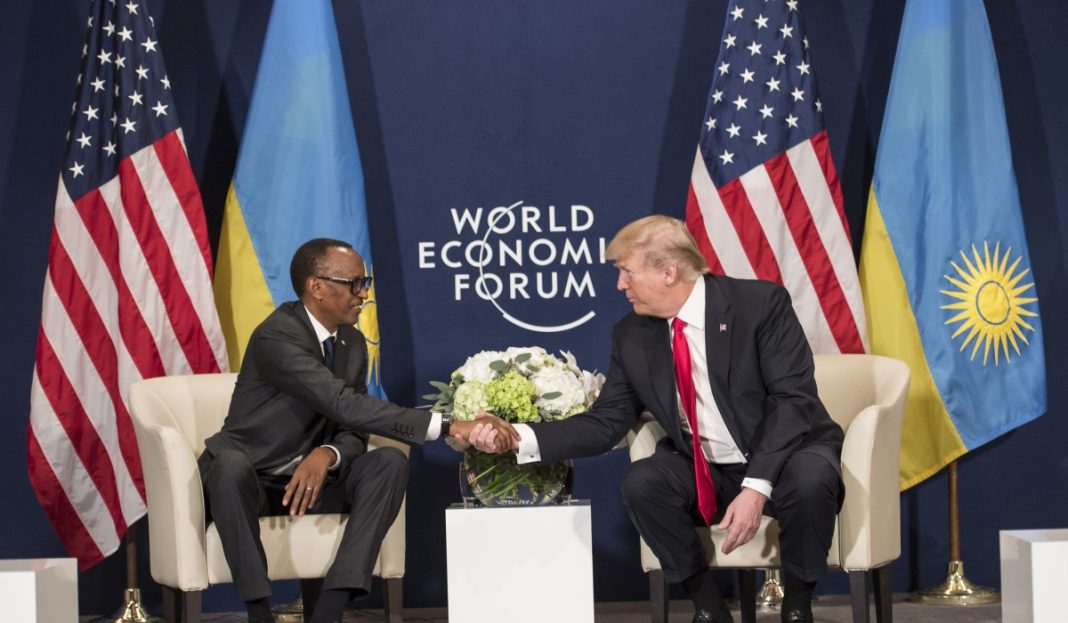Rwanda and the Democratic Republic of Congo (DR Congo) are expected to sign a peace agreement in June at the White House, with U.S. President Donald Trump in attendance. The agreement marks a key step toward resolving the ongoing conflict in eastern DR Congo.
The agreement is expected to be inked by President Paul Kagame and his Congolese counterpart Félix Tshisekedi.
In addition to the peace deal, the two countries are expected to sign separate bilateral economic agreements with the US.
On April 30, the two countries signed a Declaration of Principles, marking the beginning of a peace process aimed at restoring stability not only to eastern DRC but also to the broader Great Lakes region, which has long suffered from the spill-over of the conflict.
In the declaration, both sides reaffirmed their respect for each other’s sovereignty and territorial integrity and committed to resolving disputes through diplomacy and dialogue rather than through force or inflammatory rhetoric.
The developments followed a round of talks held in Doha, Qatar, involving delegations from the U.S., Rwanda, the DRC, and Qatar. Rwanda was represented by Brig Gen Jean Paul Nyirubutama, Deputy Director General of the National Intelligence and Security Services (NISS), and Brig Gen Patrick Karuretwa, the Head of International Military Cooperation.
The event, anticipated within the next two months, may also include other heads of state who have played key roles in efforts to address insecurity in eastern DRC.
Before the agreement is signed, the U.S. has emphasized that both parties must first meet several preconditions. Among them, the DRC must fully address internal security challenges, including disbanding the genocidal FDLR.
In addition, DR Congo is expected to implement internal governance reforms, including ensuring fair distribution of national resources across its regions.
A monitoring committee, including representatives from the U.S., Qatar, France, and Togo—the latter acting on behalf of the African Union – will oversee the implementation of these conditions.
It is equally important to note that negotiations previously conducted under the EAC-SADC framework have now been formally placed under the leadership of the African Union, with Togo taking the lead in facilitating the process going forward.
The Rwandan government has actively participated in all regional and international peace initiatives, from the Luanda and Nairobi processes to the more recent EAC-SADC, Qatar, and now U.S.-facilitated peace efforts.
Throughout, Rwanda’s position has remained clear that the crisis in the DRC can only be resolved through dialogue, diplomacy, and negotiation, not through the use of force or inflammatory rhetoric.
At the heart of the current conflict is the M23 group, which, despite gaining control of significant territory, has repeatedly stated that it does not seek power but rather the recognition and respect of its rights.
In earlier interviews, experts told The New Times that the U.S’ involvement in the peace process could inject new momentum into efforts to resolve the crisis.
However, others expressed disappointment that African nations continue to rely on external actors rather than finding African solutions to African problems.
Political analyst Jean-Baptiste Gasominari, speaking to The New Times, said he hopes that the Republican Party’s foreign policy under Donald Trump will play a good role in the process.
“The Republicans are open to discussion, and they do not mingle in the internal affairs of other countries. So this is basically the difference,” he noted.
Alex Mvuka, a researcher and analyst specialising in the Great Lakes Region, told The New Times that the U.S’ involvement is a major change since the country is coming in as a mediator not a military power.
However, he decried that there is a shift from the vision of “African solutions for African problems,” as he insisted that DR Congo problems are domestic and should be resolved by regional parties because they understand them better.
Gustave Tombola, a researcher with interest in eastern DR Congo, said it is important for everyone who can contribute to the peace to come on board in order to end the crisis.
Pointing out that Qatar was trying to bring together the AFC/M23 and the DR Congo government to iron out their differences, while the USA came in to bring Rwanda and DR Congo on the discussion table, he said both efforts are in line with the African Union (AU) processes.



